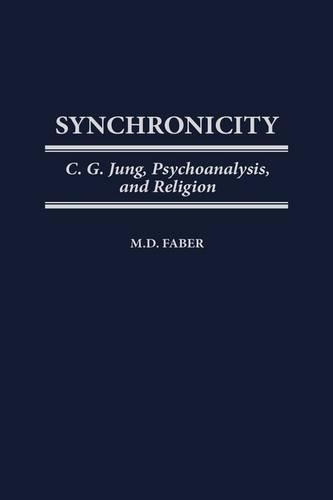
Synchronicity: C. G. Jung, Psychoanalysis, and Religion
(Hardback)
Publishing Details
Synchronicity: C. G. Jung, Psychoanalysis, and Religion
By (Author) M. D. Faber
Bloomsbury Publishing PLC
Praeger Publishers Inc
30th October 1998
United States
Classifications
Tertiary Education
Non Fiction
Cultural studies
150.1954
Physical Properties
Hardback
160
Width 156mm, Height 235mm
454g
Description
Synchronistic events can be explained fully in naturalistic terms. They comprise an instance of the uncanny as they return the individual subjectively to a period when the world, as the good parent, was sympathetically attuned to the individual's wishes and requirements. Jung invoked the spiritual, or the supernatural, or the paranormal to explain synchronicity rather than exploring the early stages of human existence. Faber offers a critique of Jung's theory of synchronicity that develops an alternative to demystify synchronistic happenings by explaining them in purely naturalistic terms. The book's larger purpose is to demystify Jung's archetypal psychology and to explain the whole Jungian approach to human behavior in naturalistic terms. Because Jung's psychology is ultimately religious in nature, the book touches generally upon the implications of religion and religious conduct. The book offers the reader an opportunity to ponder the psychological nature of synchronicity either as a spiritual occurrence with paranormal overtones or as a return of the repressed, a mnemonic trace of events that actually transpired in the life of the individual.
Reviews
"This is an absolutely fascinating book, and the best commentary on synchronicity that I have ever read. It will be of tremendous interest to Jungians. Although I am allergic to psychoanalytic explanations, I found that M.D. Faber convinced me again and again with such an analysis of the roots of C.G. Jung's famous concept."-Dr. Richard Noll, Harvard University author of The Jung Cult and The Aryan Christ
Author Bio
M. D. FABER is Professor of Emeritus of English at the University of Victoria, British Columbia and a psychoanalytic commentator on religion, philosophy, literature, and art.
